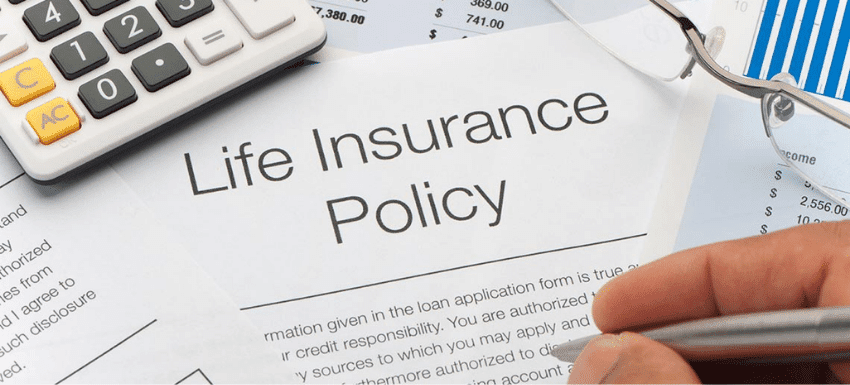
For some, permanent life insurance coverage is a difficult topic because the cost of insurance rises if the policy must pay out at some point.
It also has a component called the policy’s cash value that accumulates funds. This policy serves as both an investment vehicle and a strategy to provide a financial safety net for your loved ones after you pass away.
Furthermore, because of its high cost, permanent life insurance may not be a good fit for some people. Find out if permanent life insurance is the right option for you in this article.
What is permanent life insurance?

Permanent life insurance, as the name implies, covers you for the rest of your life. Unlike term life insurance, permanent insurance does not have an expiration date.
As a result, permanent life insurance is more expensive than term life insurance.
The death benefit and cash value are the two most significant components. The death benefit of your policy is a set sum given to your beneficiaries after you die.
Aside from the guaranteed death benefit, it builds up cash value over time, which grows tax-free. You can take cash from or borrow against the cash value of your insurance at any time and for any reason.
How does permanent life insurance work?

A portion of your premiums is used to cover the cost of insurance, while the rest is put into a savings component (the cash value), which grows tax-deferred over time.
Your family receives the death benefit in one lump sum or in installments after you pass away. They may, for example, choose to receive the money over a six- or eight-year period. The death benefit of the policy is not taxable, but the interest on an unpaid death payout is.
Let’s say an insurance policy pays out $100,000. The recipients choose to receive the reward in ten equal monthly installments. As a result, once the insurer pays the first $10,000 installment, the interest collected on the remaining $90,000 is taxable.
If you terminate your life insurance policy, the cash surrender value will be paid to you. The actual cash value minus any surrender fees equal the cash surrender value.
You can borrow money from this pool of tax-free income in the form of a policy loan and spend it any way you like. The insurer does not ask you any questions or do a credit check because you are borrowing your own money.
If you don’t pay back the loan, the insurance company will deduct the amount owed from your death benefit. As a result, when you pass away, your family will receive less money.
A permanent policy can be an excellent complement if a family wants to enhance their net worth once their TFSA and RRSP are maxed out. The tax-free sheltered growth of a permanent policy allows your payment to increase tax-free year after year after the purchase of the insurance.
The administrative fees connected with this method, however, make permanent insurance less appealing in many circumstances as compared to a TFSA or RRSP alternative.
To realize effective strategies to harness insurance for your financial circumstances, you should plan a bigger approach with your advisor.
Who needs permanent life insurance?

Term life insurance is less expensive and provides protection when you need it most. A term policy should be able to cover an asset, a liability, or both for a specific period of time in order to safeguard your loved one from unforeseeable catastrophes. Permanent life insurance, on the other hand, has a number of advantages, including:
- High-net-worth individuals who have exhausted all other investment options and require life insurance.
- People who have a special-needs child or are dependents for the rest of their lives
- Wealthy people who desire to leave their fortunes in good shape for their heirs
- People who desire to leave their loved ones a financial heritage
- Seniors who do not have enough money set aside to handle end-of-life expenses such as medical treatment and funeral expenses.
- People who choose permanent life insurance to term life insurance.
Types of Permanent Life Insurance
Permanent life insurance comes in four different options:
- Whole Life Insurance
- Variable Life Insurance
- Universal Life Insurance
- Variable Universal Life Insurance
Which one is best for you will be determined by your risk tolerance and desired payment flexibility.
Whole life insurance
Whole life insurance is one of the most predictable types of insurance. It has a flat premium guarantee and a tax-free death benefit guarantee. That implies the premium and death benefit remain the same for the rest of your life.
The cash value of a whole life insurance policy is also guaranteed to grow at a certain rate (set by the insurer). As a result, whole life insurance may be ideal for those who prefer predictability.
Some whole life insurance policies also allow you to earn dividends. Participating in whole life insurance policies is the name given to these policies. They’re called so because they allow you to share in your insurer’s surplus earnings.
You have the option of receiving dividends in cash or keeping them with the insurer and earning interest on them. You can also use them to buy more coverage or lower your premium payments in the future.
Variable life insurance
More investment opportunities are available with variable life insurance. It has adjustable premiums and a variable death benefit. While the cash value does not grow at a guaranteed rate, you do have control over how it is invested.
You designate your premium payments to a separate account with a variable life insurance policy. This account’s funds are invested in a variety of investment options, including bonds, equities, and money market instruments, that you select.
The cash value of the policy will fluctuate based on the performance of various investment options. The insurer will deduct the cash value of the policy every month to cover the expense of maintaining it.
Your life insurance policy will remain active as long as there is enough cash value to cover the monthly premiums. If your finances are insufficient, the insurer will ask you to increase your rates, or your insurance may lapse.
You can earn more money with variable life insurance than you might with a full life policy. However, if things don’t work out, you could lose all of your money, including your initial investment.
Universal life insurance
Universal life insurance gives you a number of options. You can change the amount and frequency of your premium payments (within certain limits). You can also customize the death benefit of your policy to meet your specific needs.
Universal life insurance, like whole life insurance, provides a guaranteed death benefit as well as an investing component. In this situation, however, the interest rate on cash value may vary, but it will never go below a defined minimum.
For instance, your insurance could specify a minimum interest rate of 2% that is guaranteed for the duration of your policy.
The rise of the cash worth is linked to the success of the investments. So, while the payout could be substantialAnother advantage is that you can borrow or withdraw money from the policy’s cash value. It can even be used to pay for insurance premiums, if things don’t go according to plan, you’ll have to pay higher premiums to keep your universal life insurance policy active.
Another advantage is that you can borrow or withdraw money from the policy’s cash value. It can even be used to pay for insurance premiums.
Variable universal life insurance
Variable universal life insurance combines the benefits of both universal and variable life insurance policies. You have control over how premium money is invested, as well as the number of premiums paid and the death benefit.
Money market accounts allow you to diversify your investments and generate higher returns. However, there is a danger because no one can forecast how the market would behave. People who want the most freedom may find variable universal life insurance to be a good fit.
Permanent Life Insurance Quotes

Because permanent life insurance generates cash value, it is more expensive than term life insurance. Premium rates, on the other hand, range significantly between different types of permanent life insurance policies. Whole life premiums are often higher than universal life premiums for the same coverage level.
Permanent vs. Term Life Insurance
Both permanent and term life insurance protect your family financially in the event of your death. But that’s about the extent of the resemblances.
Term life insurance covers you for a set length of time, whereas permanent life insurance covers you until you die. In addition, unlike term life insurance, permanent policies accumulate cash value.
Furthermore, all term life insurance policies provide guaranteed death payouts, whereas permanent life insurance does not. Some permanent life insurance policies allow you to adjust the benefit amount to meet your specific needs.
Finally, you can change the frequency and amount of your premium payments on some permanent insurance. Term life insurance does not provide this level of flexibility. Permanent life insurance is more expensive than term life insurance because of the cash value component and lifetime coverage.
Benefits of Permanent Life Insurance
A guaranteed payout
A permanent life insurance coverage lasts until you die. As long as you pay your premiums, your coverage is valid for the rest of your life. When you get permanent life insurance, you can rest easy knowing that no matter when you die, your loved ones will receive a tax-free death benefit.
Fill-it, shut-it insurance product
With term life, you have to renew the policy at the end of each term to keep the coverage going. At every policy renewal, you pay higher premiums and might even have to undergo medical testing to prove insurability.
You don’t have to worry about all this with permanent life insurance. You take a medical examination only once — as part of the approval process. Once the insurer issues the policy, it will cover for your entire life, regardless of any health issues that might develop later.
Builds cash value

Permanent life insurance policies, unlike term life insurance, accumulate cash value. It’s a kind of “forced” savings vehicle because a portion of your premium payments goes toward developing the cash value. At any time, you can take money out of the policy’s cash value or borrow against it. It can also be used as security for a third-party loan.
In general, the cash value rises slowly initially but then accelerates after a few years. If you don’t withdraw or take out a loan, your cash value may eventually be sufficient to cover your premiums for the rest of your life.
Tax Advantages
A permanent life insurance policy’s death benefit is usually tax-free, while the cash value increases tax-deferred. This implies that any money you withdraw will not be taxed, as long as the amount you remove does not exceed the amount you’ve already paid in.
Potential Dividends
You may be able to earn dividends on some permanent life insurance contracts. You can put your dividends back into your insurance to:
- build up the cash value more quickly
- buy additional coverage
- pay for future premiums, or
- personal income or investments outside of your permanent life policy
Disadvantages of Permanent Life Insurance
It’s costlier than term life:
The expense of permanent life insurance is without a doubt the most significant disadvantage. Permanent life insurance, on average, will set you back a few hundred dollars every year. Permanent life insurance will cost five to fifteen times more than a comparable term life coverage.
It’s not always a good investment:
The appeal of permanent life insurance is its cash value. A portion of your premium payments goes into a tax-free savings account. Permanent life insurance, in a sense, works as a form of forced savings.
Nonetheless, there are three major drawbacks to this saving feature:
- You have little say in how your premiums are invested by the insurer.
- The rate of return is typically lower than what may be found elsewhere. Whole life insurance policies have an average yearly rate of return of 3-6 percent. The majority of other specialized investment choices (such as mutual funds) offer a higher return.
- Fees for permanent life investments are on the higher side (at times even exceed 3%).
Is it a good option for you?
Permanent life insurance policies can be a smart option for someone who:
- They want their beneficiaries to be paid regardless of when they die.
- Wants to leave money to their loved ones or keep their estate’s value for their heirs
- Has exhausted all other investment possibilities and is looking for a tax-advantaged savings account.
Permanent life insurance has a number of advantages, including lifetime coverage, cash value, and flexibility. These privileges, however, are not inexpensive.
Permanent life insurance is expected to cost five to fifteen times more than term life insurance. Also, keep in mind that some policies are permanent and must be closely monitored.
Which is the best life insurance policy?
The answer to this question isn’t found in the back of the book. Life insurance is a deeply personal purchase and there are many factors to consider.
In addition to taking into account your current family’s financial needs, you should also account for future expenses like tuition, funeral arrangements, estate taxes, and any other debts you would like settled if you died. (If that sounds complicated, there are insurance calculators).
When you search for insurance quotes, there is a multitude of options to choose from. Nevertheless, you should only purchase a policy you can afford and that makes sense for you and your family.
Thankfully, AG Group Enterprise Ltd is here to help! Our mission at AG Group is to provide a wide range of life insurance policies, including term coverage, permanent coverage, RRSPs, RESPs, and more!
With AG group’s insurance policies, you can protect the future of your family and your finances. A good policy ensures a bright future!



